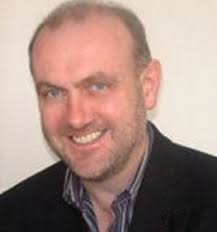Revenge porn, cyber bullying and virtual lessons all feature in the final report from Brighton and Hove’s recently retired director of public health Tom Scanlon.
Dr Scanlon introduces the report with a video filmed on the Downs and sums up with another shot by the i360.
The theme of this year’s report is social media and the benefits and problems it poses to our health.
He said: “It is amazing when you think back just 13 years, there was no Facebook, no Snapchat, no Instagram, no Twitter and not even an iPhone in sight.
“But now it’s like these things are part of our everyday lives. There is an awful lot we can learn from this media, a lot we can learn about public health and a lot we can learn about our social lives.
“Social media is giving us an insight into lots of conditions, how diseases might spread, patterns of drug use.
“In Brighton and Hove we started to use it to record school absences and that means that we will be able to see disease or illnesses outbreaks in children, how they are spreading and we can use the same media to implement advice, guidance, treatments even, using that social media in real time.
“Social media comes with lots of warnings, some of which we are quite familiar with – internet trolls, revenge porn, even the threat of radicalisation.
“But there are some things I don’t think we’ve properly clocked. People are sharing an awful lot online about their personal lives, their anxieties, their depression, their self-harm patterns and all of this is not good.
“It is not always good to share and there is a risk that some of this sharing leads to copycat behaviour and, when you’re talking about suicide, that’s quite a risk.
“We know from the report that in Brighton and Hove, 15 per cent of children suffer cyber bullying, but we also know that just as bullying can be spread through social media, so can kindness, so can empathy, so can feelings of concern for one another.
“And just as we have to focus on stopping things happening though social media, we have to work on promoting certain things that will help our health and wellbeing using the same social media.
“Sexual health is another area where we see two sides of the same coin in social media.
“People can use geo positioning apps to identify strangers really, to engage in some very high risk behaviours, but we can use that same social media to target people that are engaged in what are often self-destructive behaviours and bring them the advice, the connections they need, to help them out of what are often very difficult places in their lives.
“If there is a sub-theme running through this report, it’s addiction.
“We have seen that social media can be used to feed all sorts of addictions. Gambling addiction, substance misuse, sexual addiction.
“But social media is no substitute for human contact and that is very clear. Facebook friends aren’t necessarily the same as real friends.”








